Frontline medical hero says east can beat new COVID-19 threat
Frontline medical hero Michael Breeze says support from the eastern suburbs is inspirational and the community can get the better of COVID-19.
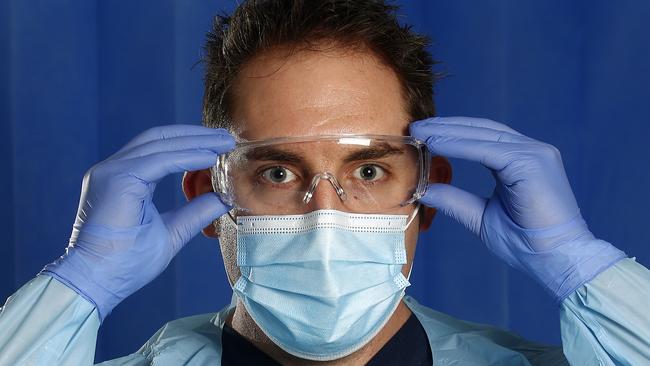
Wentworth Courier
Don't miss out on the headlines from Wentworth Courier. Followed categories will be added to My News.
Michael Breeze remembers the exact moment he heard about the pandemic. The clinical nurse educator was striding along the footpath on his way to work at The Prince of Wales Hospital when his phone began to ping. An old-school news junkie, Michael began scrolling through his news feed to see what all the fuss was about. And what he saw made him stop dead in his tracks.
A mysterious and particularly virulent virus was sweeping through the city of Wuhan, the capital of Hubei Province in China, and it was doing so at a startling pace. The virus, COVID-19, was moving rapidly and seemingly without rhyme or reason. Worse, people were dying in their hundreds, possibly thousands. Details were vague and frightening.
Michael had no idea what to think.
“I was reading it and thinking, ‘This is terrible’,” he recalls.
“The rate at which it was spreading … it was concerning.”
In the coming days Michael read everything he could about the virus, where it had originated from, who it was affecting and why, and importantly, what medical professionals were doing in a bid to contain it.
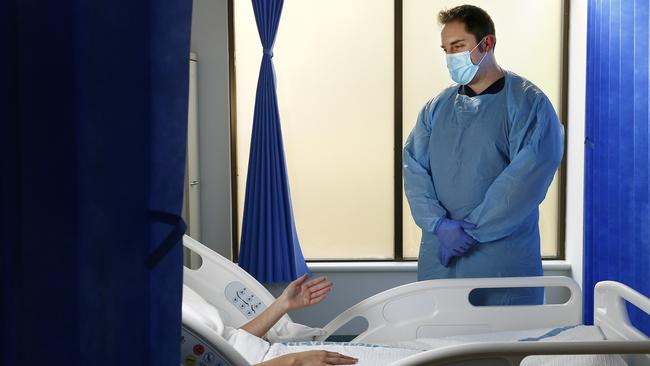
During breaks and shift handovers he and his co-workers huddled together, holding hushed conversations about whether the virus could reach Australia’s shores and what it would mean if or when it did.
“We were watching it spread through Wuhan and then Italy too,” he says.
“It was dramatic. The rate …” He trails off, remembering how stunned he was to watch it unfold.
Michael, and by this stage the rest of the world, continued to follow the news closely.
He and his co-workers were on edge, certain that COVID-19 would strike Australia sooner or later. They waited for news, any news, and then it came.
“It was about the 24th of March,” he recalls.
“I remember the date because it was a week before my birthday … I remember the moment.”
The moment Michael is referring to was when the leadership team of the hospital was called together and told a new general medical ward was to be created.
Nobody will go so far as to refer to this ward as a COVID-19 ward, hospitals tend to be cautious with the wording they use, but it doesn’t take much to read between the lines. The hospital was ensuring it was ready to handle anything that came its way.
The ward was built within seven days thanks to teams of builders, cleaners, contractors of various kinds and hospital staff, all of whom worked around the clock. The atmosphere was eerily calm, but there was no doubt the hospital was preparing for the worst. And soon that became a reality with hundreds of patients suffering COVID-19 like symptoms beginning to arrive.
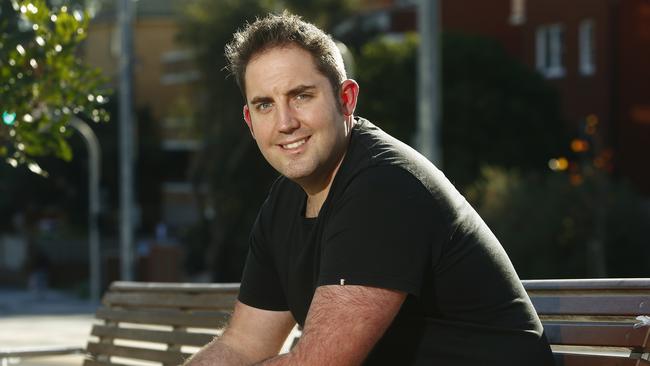
At first the mood was tense. There was so little known about the virus and what it was capable of. But still the majority of those tested at Prince of Wales returned negative results.
However, a small number of patients did test positive and with talk of a second wave imminent, it is likely there will be more positive cases in the coming weeks.
The situation is volatile and continues to change by the hour. Just days ago restrictions were reintroduced in NSW with hotels from 12.01am, July 17 required to limit group bookings to a maximum of 10 people and cap the number of customers inside each venue to 300 people. With a wave of cases recorded in Victoria, (by noon Friday 424 new cases had been announced), the border between the states has been temporarily closed.
Residents of Sydney hot spots have also been banned from travelling to some states. The atmosphere on the streets of our suburbs has changed too. More residents are donning masks and many of us are carrying our own hand sanitiser and applying it regularly. Protective shields have popped up in stores ensuring we keep that bit further away from one another.
Interestingly, the Australian government does not recommend we wear masks unless we’re considered at risk.
Sydney resident and epidemiologist Professor Mary-Louise McLaws, member of two World Health Organisation expert advisory panels on the virus, would like to see masks made mandatory, not just for Melbourne, but all of Sydney and public transport nationwide.
“If you are sitting in close confinement particularly in planes, buses or trains, or anywhere where you can’t keep your distance and people are talking, you need to wear a mask. It’s a very cheap preventive measure that works well,” she says. “Leaders can change the message and say we now have updated science. This keeps the community primed to understand that with new evidence comes new directions by the leadership.”
It sounds dramatic, but it’s restrictions such as these that are keeping us safe, says Michael. That and a generally positive attitude towards following the rules. Yes, some are taking risks, but the vast majority of us are doing exactly what we are told in a bid to keep the virus under control.
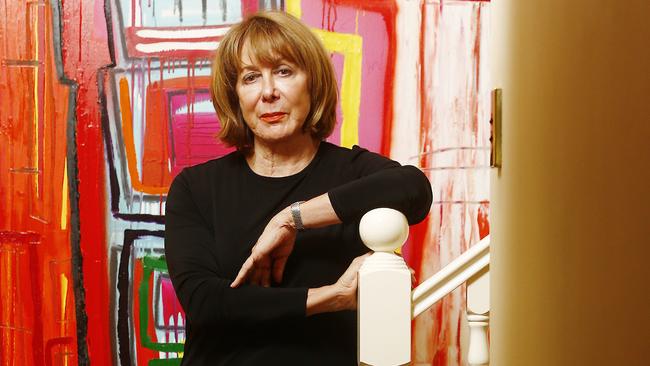
Michael is adamant that Australians, particularly those of us in the east, have done well in terms of fighting COVID-19.
He has some theories as to why.
“We’re an island so it took a while to reach us,” he says. “We weren’t at the epicentre of infection and the people who deal with these sorts of scenarios had time to prepare. It made a significant difference.” Then, there’s the fact we have pulled together as a community, says Michael.
“I would like to say thank you to the public,” he says.
“We have done so well. We’re self-isolating when we’re unwell. We’re practising social distancing and staying well away from one another as we go about our lives. We’re being very careful of other people and also respectful of personal space. Generally speaking we seem to have stopped thinking, ‘Oh she’ll be right’ and started taking this virus seriously. It’s wonderful to see.”
It’s imperative that we continue in this fashion, particularly with a second wave (possibly even a third wave) looming, says Michael, who is at pains to acknowledge the restrictions are ‘hard on everyone’.
But, he adds, if we want to get through this period of time safely we do need to change our mindsets and begin to see the pandemic as a ‘marathon, not a sprint’.
“We’ve done so well here in Australia, especially when compared to many other countries,” he says
“We’ve set a good pace, our rates of infection are low and we’ve learned such a lot about this virus already … but we have a long way to go.
“We still need to carry out testing, people need to stay at home and we need to be prepared.
“It is hard … very hard. For all of us. But what we’re talking about here is short-term pain for long-term gain. And it’s great to see that eastern suburbs residents are doing their best. People are trying their best.”
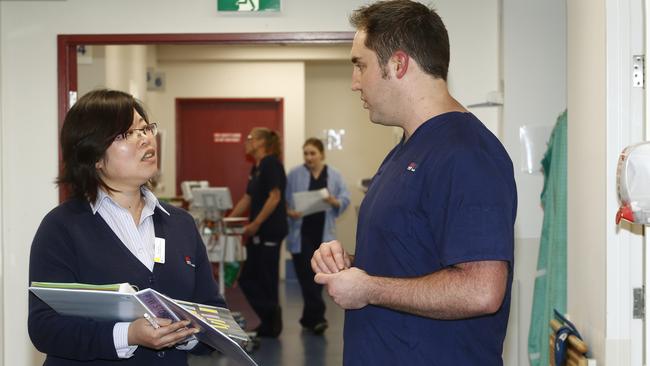
The pandemic has categorically turned regular life upside down, But nobody has had it tougher than those who work the frontline, including Michael and his hospital teammates.
The eastern suburbs community has recognised this and taken the time to express gratitude with personal notes and thank you cards. Cafes and restaurants have offered free coffees and meals too. Flowers have been delivered, and gifts. None of this has gone unnoticed, says Michael.
“I would like to thank the community for their ongoing support,” he says.
“It is so nice to see the words of support from the community on our noticeboards. There’s one that we pass on our way into the hospital. All of us see the notes and cards and words of encouragement … it makes more of a difference than you might ever know.”
Michael also thanked the Prince of Wales Hospital Foundation for its support and encouraged the community to consider donating.
“If you do wish to donate, whether it be a big or small donation, know that it goes a very long way in supporting our nursing staff. And of course, words of encouragement are always welcome.”
NB: Donations can be made by visiting www.powhf.org.au.
